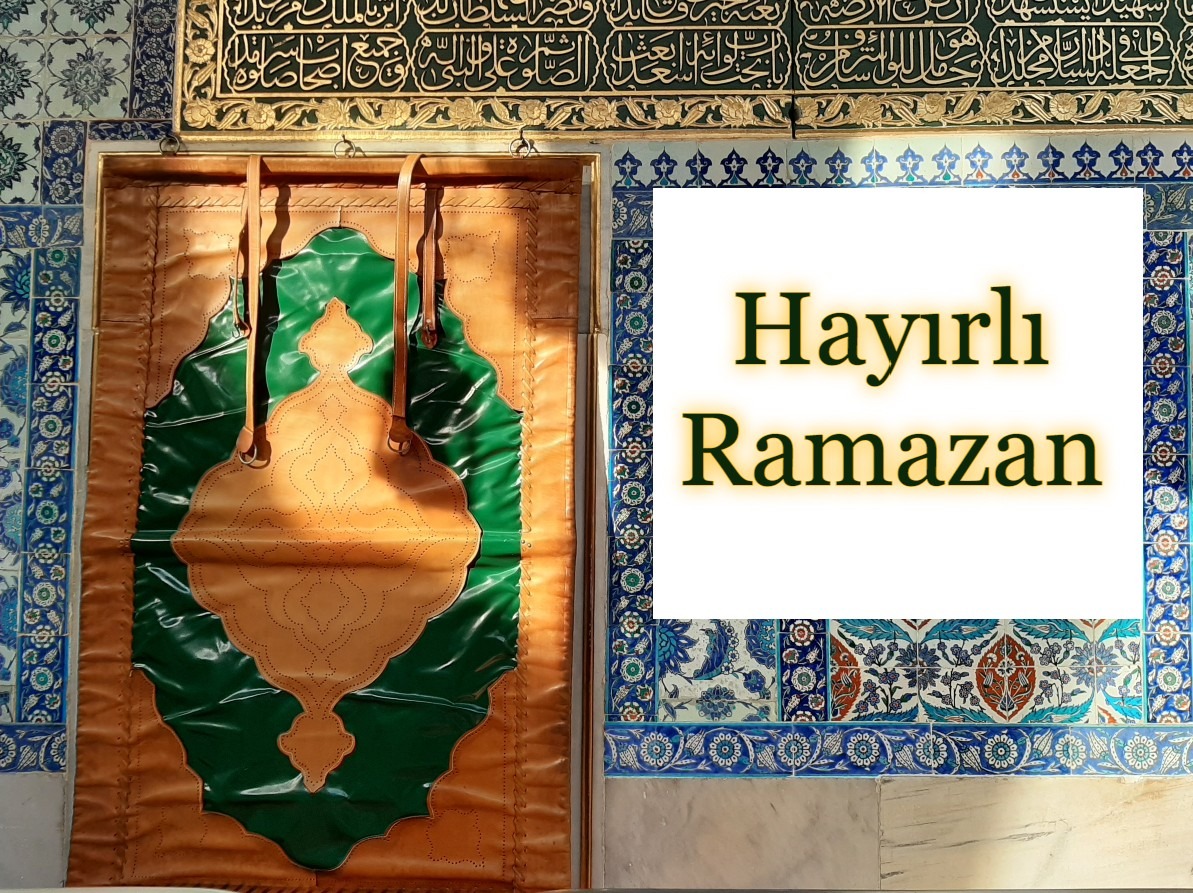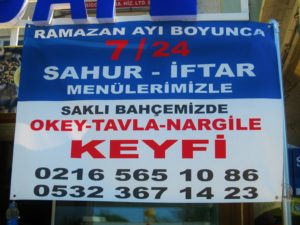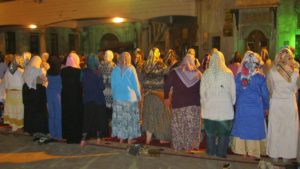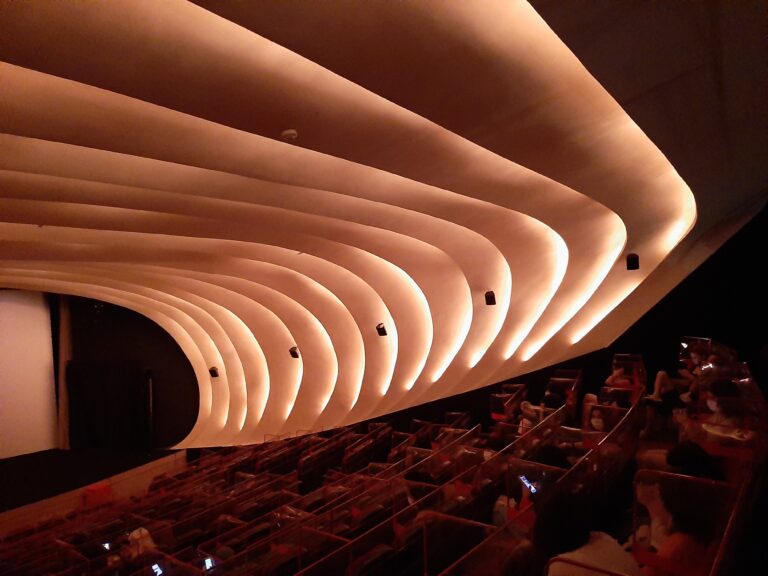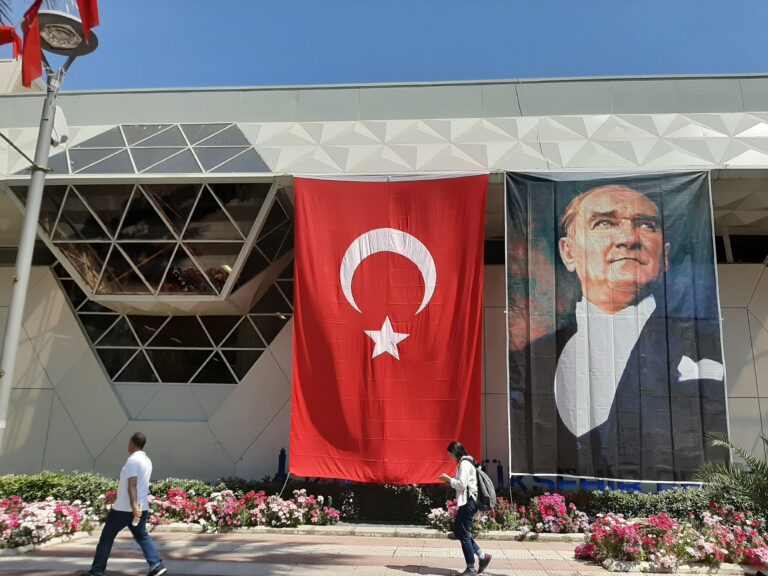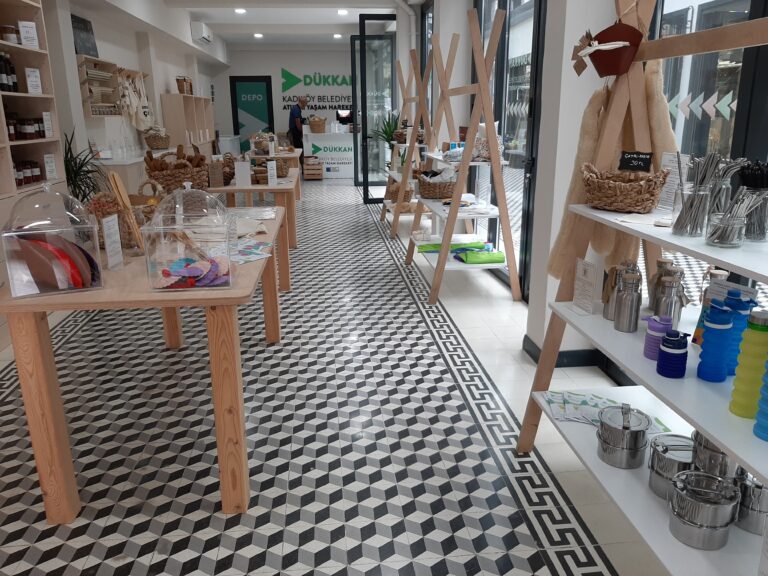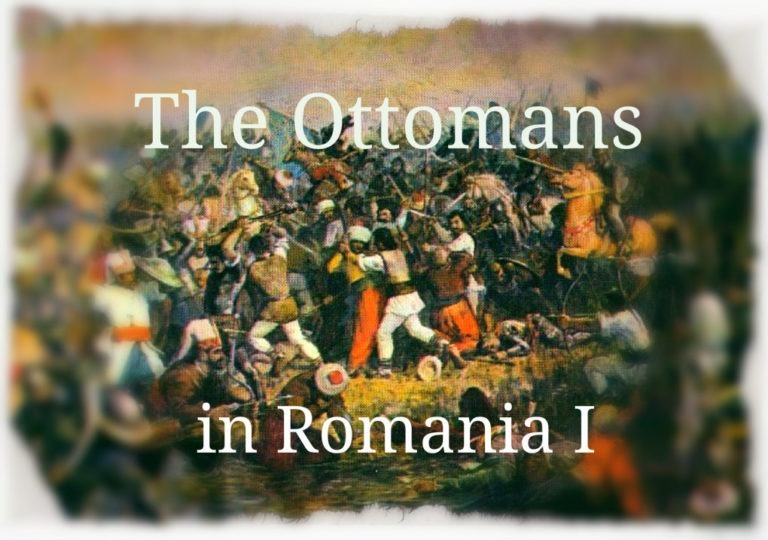Ramadan in Turkey Explained
Every year Muslims around the world take part in Ramadan when for thirty days they allow no food or drink to pass their lips in daylight hours. True believers are also required to abstain from sex. Doing without is a personal statement of faith and shows solidarity with those who have very little all the time.
The date of this holy month changes each year because it is set according to the Hicri, the Muslim Calendar. Unlike the Georgian calendar with 365 or 366 days to the year, the Hicri is a lunar calendar with twelve months totalling 354 or 355 days. As a result Ramadan in Turkey and other Muslim holy days occurs eleven days earlier each year in comparison to the Georgian calendar. Traditionally the exact starting date depends on the sighting of the crescent moon, but as of 2025 Turkey has chosen to opt for a fixed calendar date insted.
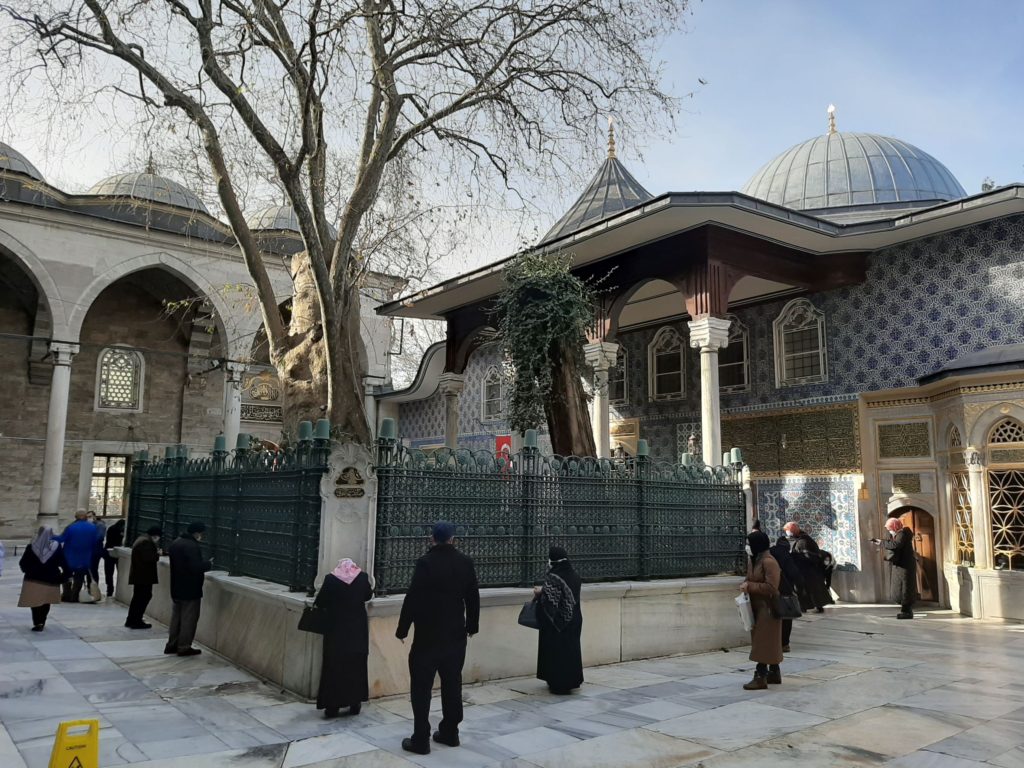
Not everyone can or should fast, Menstruating women and new mothers are considered spiritually impure at these times, the very young are not considered ready for such a difficult undertaking and fasting is known to be detrimental to the health of the elderly and travellers. Nonetheless it’s common to read news stories about older people who insisted on meeting their religious duty ending up in hospital or worse.
Food and other traditions during Ramadan in Turkey
Once the religious authorities have determined the start date by the appearance of the full moon, believers get up before the sun to partake in the first of the month’s sahur. Sahur is the breakfast eaten during Ramadan, intended to sustain followers for the whole day. It can be a typical Turkish breakfast consisting of olives, white cheese, cucumber, tomatoes, boiled eggs, honey, jam and bread, as well as flaky pastry börek, savoury cake-like pöğaça filled with yellow cheese or dill or sucuklu yumurta, eggs fried with finely sliced spicy sausage.
Turkish friends tell me it can be hard to eat so much food so early in the morning, and many of them suffer digestive problems as the days go on. However it is not done to complain. It states in the Koran that if fasting is too difficult or a person can’t do it, for whatever reasons, it’s permitted to catch up the days they miss over the following year.
Traditionally, waking up in time was never a problem. During Ramadan in Turkey drummers employed specifically for this reason used to walk the streets of every small village, town and city in the small hours, making sure everyone knew to get up. These days Ramadan drummers are less common in big cities, but we still get them in my part of Istanbul.
In the month before Ramadan in Turkey local councils hold auditions to choose the best drummers for the task. Once the selection has been made notices containing their photos and IDs go out to all the building managers in the area. This is so that when a man knocks on your door at the end of Ramazan asking for a tip for waking you each morning, you know he’s the real deal, and not a pirate chancing his luck.
After this meal eaten in the dark of the morning, people cannot eat again until a piece of white cotton can no longer be seen when held up to the darkening sky at the end of the day. Only then can they break their fast with a meal called iftar. Newspapers publish iftar schedules showing the times in cities throughout the country, fast food outlets print them on the back of fliers and every TV channel used to show cannons firing shots across the Bosphorus.
Until this time people must consume nothing, no food, liquid or even cigarettes. Most people say not drinking anything is the hardest part of fasting, especially in summer when daylight can last for up to 15 hours. Smokers say doing without nicotine is worse.
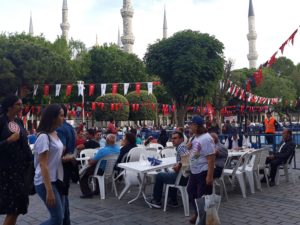
How much food there is on an iftar table and what is served depends on the income of the family that sets it. There will usually be soup and then rice, köfte, kebabs, vegetables cooked in olive oil served hot or cold, and myriad other delights, but everyone will start by eating a date like the Prophet Muhammed.
The word for date in Turkish is hurma, derived from the Arabic word meaning respect. The Prophet is believed to have always had dates on his iftar table. He preferred them because they are uncooked and therefore untouched by fire, believed to be a sign of wrath. These simple fruits are mentioned 23 times in the Koran and are a symbol of power, wealth, abundance and faith.
Ramadan in Turkey is a time to be with family and if funds permit Turks love to go out in large groups for iftar meals. Restaurants offer set iftar menus and some of them even stay open through the night and offer sahur as well. As not everyone has money or family, local mosques and councils set up tents where those in need can come together and enjoy a free iftar meal. In Sultanahmet and other parts of the city there are Ramazan fetes where hundreds of people watch karagöz shows (Turkish puppetry), sample sweets, go on rides and stay out as long as possible, enjoying the festive air.
Other religious rituals during Ramadan in Turkey
Yet Ramazan is an extremely pious occasion. Mahya, decorative lights that spell out words or pictures, are strung up between the minarets of the mosques. Collective prayers called Tarawih, a word that comes from the Arabic meaning to rest and relax, are held each night. They take place after Salatu-l-Isha, normally the final prayer of the day. Believers gather together in the mosque to listen to verses being recited from the Koran. It’s considered a form of Islamic mediation and dates back to the time of the Prophet Muhammed who was believed to have recited the Koran from beginning to end during the month of Ramazan.
In the past the last ten days of the month was reserved for spiritual retreat. Although this doesn’t happen that much anymore because people have jobs, studies and other duties to attend, Kadir Gecesi the Night of Power, is still widely observed. Kadir Gecesi always falls in Ramazan and is the night when the Prophet Mohammed is said to have received the first revelation of the Koran from the Angel Gabriel. On this occasion mosques like Eyüpsultan Camii are full of people at prayer, because they believe this is the night their appeals will be answered.
If you’re going to be in Istanbul during Ramadan in Turkey, check out my suggestions on some dos and don’ts to ensure you get the most out of this special time.
************
Here are my helpful tips for planning your trip to Turkey
For FLIGHTS I like to use Kiwi.com.
Don’t pay extra for an E-VISA. Here’s my post on everything to know before you take off.
However E-SIM are the way to go to stay connected with a local phone number and mobile data on the go. Airalo is easy to use and affordable.
Even if I never claim on it, I always take out TRAVEL INSURANCE. I recommend Visitors Coverage.
I’m a big advocate of public transport, but know it’s not suitable for everyone all the time. When I need to be picked up from or get to Istanbul Airport or Sabiha Gokcen Airport, I use one of these GetYourGuide website AIRPORT TRANSFERS.
ACCOMMODATION: When I want to find a place to stay I use Booking.com.
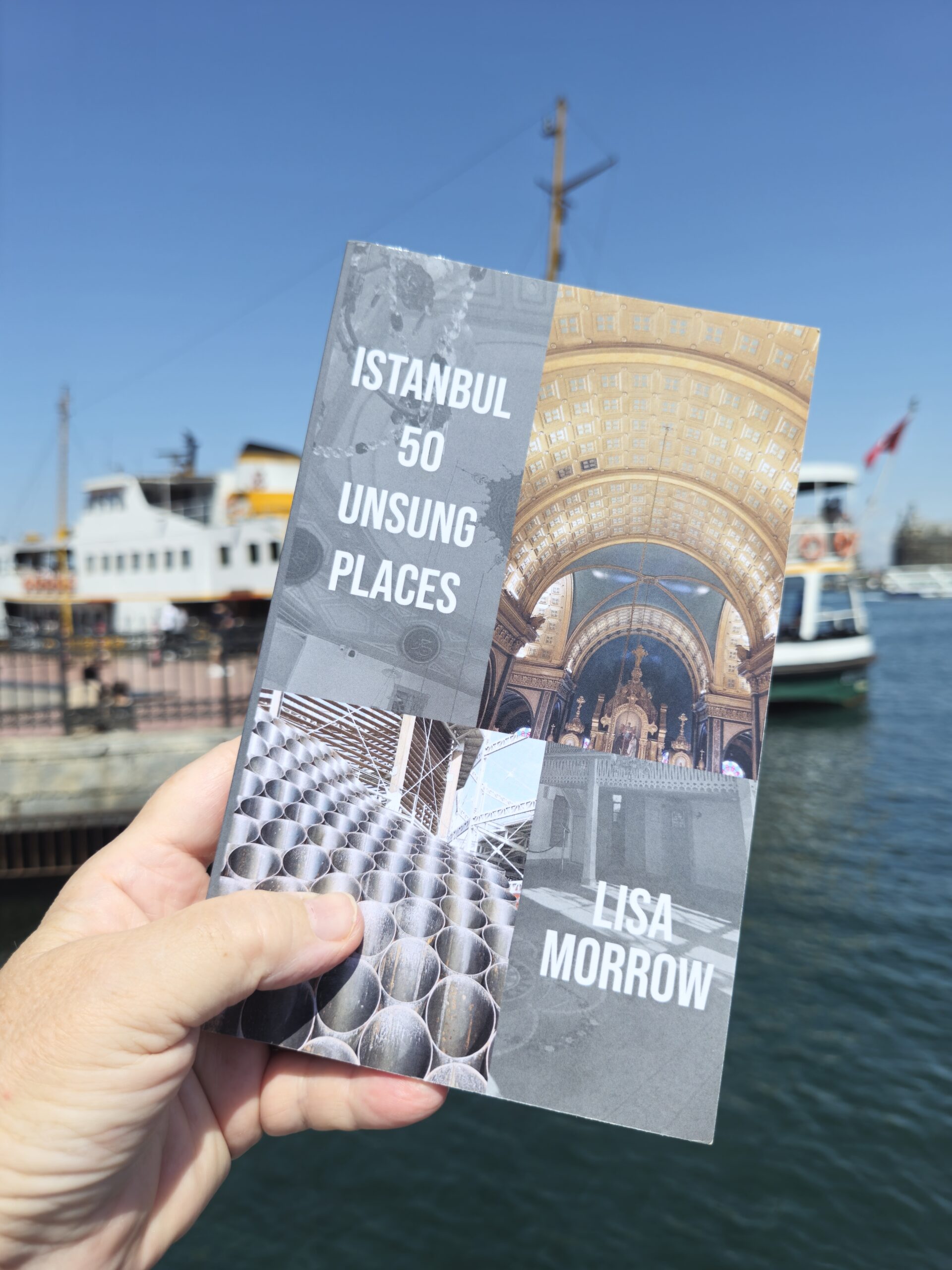
CITY TOURS & DAY TRIPS: Let me guide you around Kadikoy with my audio walking tour Stepping back through Chalcedon or venture further afield with my bespoke guidebook Istanbul 50 Unsung Places. I know you’ll love visiting the lesser-known sites I’ve included. It’s based on using public transport as much as possible so you won’t be adding too much to your carbon footprint. Then read about what you’ve seen and experienced in my three essay collections and memoir about moving to Istanbul permanently.
Browse the GetYourGuide website or Viator to find even more ways to experience Istanbul and Turkey with food tours, visits to the old city, evening Bosphorus cruises and more!
However you travel, stay safe and have fun! Iyi yolculuklar.
